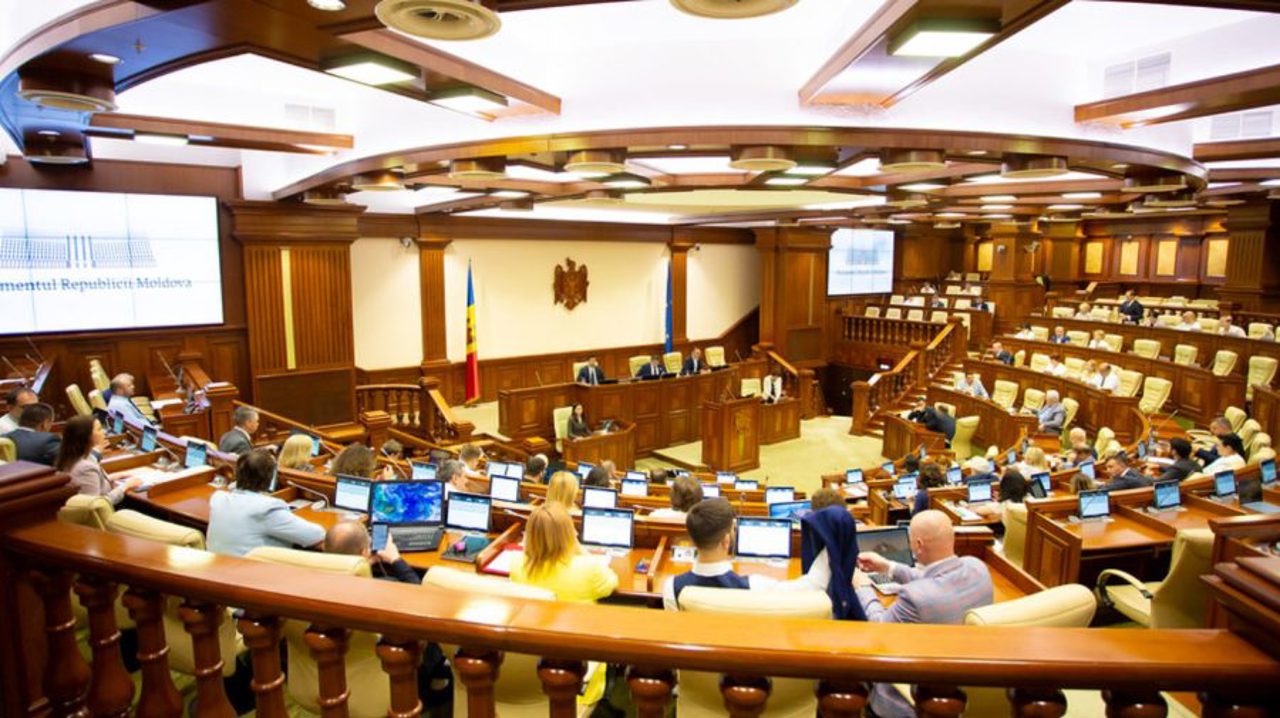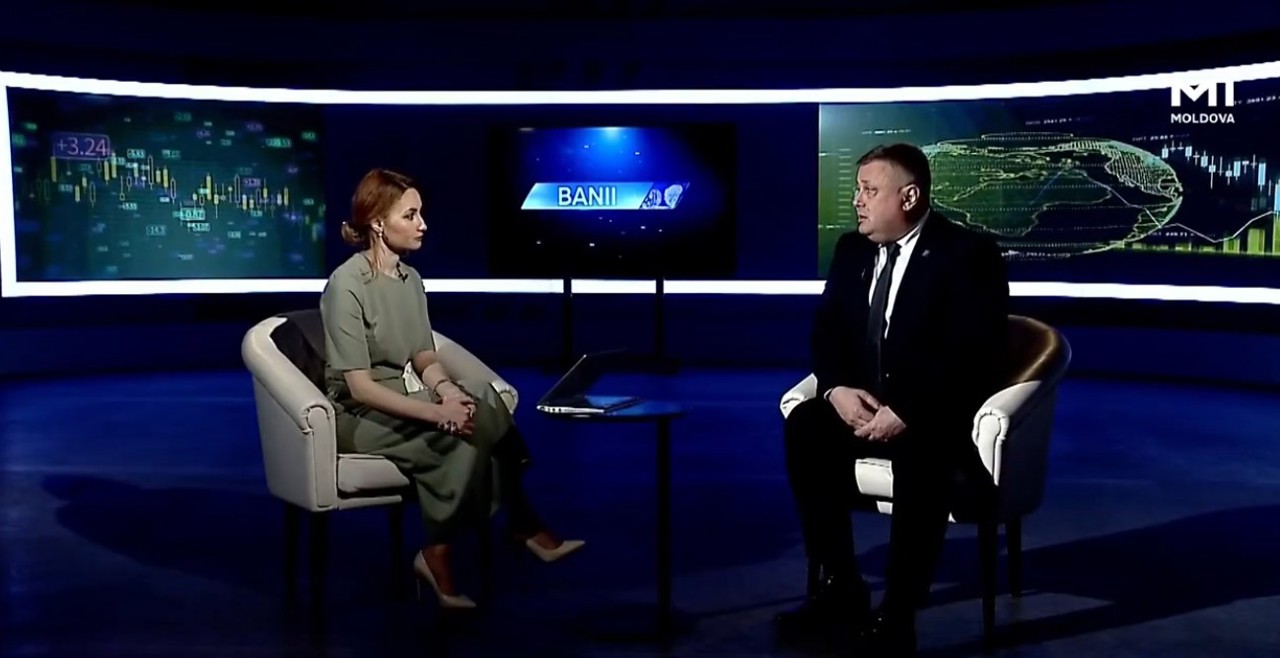Moldova’s controversial Amnesty Law: Life-sentenced prisoners released

All individuals involved in "creating the legislative breach" that allowed the release of life-sentenced prisoners must be investigated, and the investigation should be conducted by the relevant legal authorities, not by "a person with a conflict of interest."
This is the reaction of the Party of Action and Solidarity (PAS) to the initiative of deputy Olesea Stamate, who proposed the establishment of a parliamentary investigation committee to examine the amendments to the Amnesty Law and the circumstances surrounding the recent releases of life-sentenced prisoners.
Olesea Stamate, the author of the controversial amendments, issued a new public invitation on April 18, specifically addressing her former party colleagues, urging them to support the draft resolution she proposed the day before. "If you truly want the truth to come to light, show it through actions, not silence. To this day, no PAS deputy has signed the proposal. Parliament has the opportunity to demonstrate transparency. It’s time for everyone to take responsibility," Stamate wrote in a Facebook post. Stamate announced on April 16 that she was resigning from the PAS faction after being expelled from the party.
On April 17, during a televised interview, President Maia Sandu commented on the scandal surrounding the Amnesty Law. She emphasized that the amendments passed in 2022 created risks that were exploited "with the support of some individuals from the National Penitentiary Administration (ANP) and with the involvement of some judges."
The President admitted that she had promulgated the first amendment to the Amnesty Law "in emergency mode." This amendment, which removed the condition of no risk of reoffending for reducing the sentence to 30 years for life-sentenced prisoners, reached the President’s office on the very day it was supposed to be promulgated.
"It wasn’t just this amendment, but also others, and we were asked to promulgate them in an emergency mode because they were things that couldn’t wait. This is no justification. It is a lesson for us that, no matter how urgent the situation is and no matter how much trust we have in our colleagues, we must always take the time to read carefully and verify. I believe the main problem here is that a risk analysis was not conducted," the President stated on JurnalTV.
Maia Sandu also noted that it was important that the "mistake" was acknowledged and partially corrected in the cases currently in progress. Three elements need to be investigated: first, "what happened in the institutions of the ANP"; second, "what happened in the courts, because at least a few cases raise doubts about the correctness of the decisions"; and third, "how the law was drafted and the amendments were approved, and whether there are serious suspicions regarding this process," Maia Sandu explained.
The amendments to the Amnesty Law, adopted to mark the 30th anniversary of Moldova’s independence, as well as adjustments made to the Penal Code, which paved the way for the release of several life-sentenced prisoners, have become one of the most controversial and widely debated topics in recent times.
The ruling party expelled deputy Olesea Stamate, a co-author of the draft amendments, and requested that she relinquish her parliamentary mandate. The scandal has sparked strong reactions, with the opposition fiercely criticizing the government, calling for the resignation of the entire faction and for snap elections. In response to the scandal, Parliament swiftly adopted new legislative amendments. As a result, life-sentenced individuals will no longer be able to benefit simultaneously from both sentence reduction and conditional release from prison. The law was approved by 54 PAS deputies, while members of the communist and socialist opposition abstained, allowing the initiative to pass in two readings.
The Constitutional Court also suspended the implementation of certain provisions of the Amnesty Law for the 30th anniversary of Moldova's independence. The decision, made on April 8, followed a request from the General Prosecutor, Ion Munteanu.
Meanwhile, the Ministry of Justice initiated an investigation into the application of the Amnesty Law following suspicions of abuse and inconsistencies in the release of life-sentenced prisoners. The investigation is focused on the activities of the National Penitentiary Administration (ANP), the eligibility evaluation commissions, and how the law was applied by the responsible authorities. The Superior Council of Magistracy confirmed that all judicial decisions made in cases where the Amnesty Law was applied to life-sentenced individuals will be reviewed.
In the wake of the scandal, members of the Communist and Socialist Bloc (BCS) submitted a simple motion against the policies promoted by the Ministry of Justice. The opposition accuses the leadership of the institution of "faulty" management, "non-compliant" decisions, and a lack of response to "serious issues" within the justice sector. In reply, the Ministry of Justice stated that it would not comment on the points raised in the motion.
In addition to Olesea Stamate’s expulsion from PAS, the scandal also led to the resignation of Anatolie Falca, head of the National Penitentiary Administration (ANP), at the request of Prime Minister Dorin Recean. Meanwhile, experts are warning that this legislative error risks damaging the government’s image, giving the opposition fertile ground to exploit the situation politically and undermine public trust in the current administration.
It is important to note that, as a result of the legislative changes supported by the parliamentary majority in 2021 and 2022, nine life-sentenced prisoners were released from prison, according to ANP data. Among them were two individuals convicted of particularly serious crimes: Alexandru Sinigur, Iurie Radulov, and Dorin Sușițchi. Two of them have returned to prison, while the third managed to flee the country, according to the General Inspectorate of Police.
Translation by Iurie Tataru





